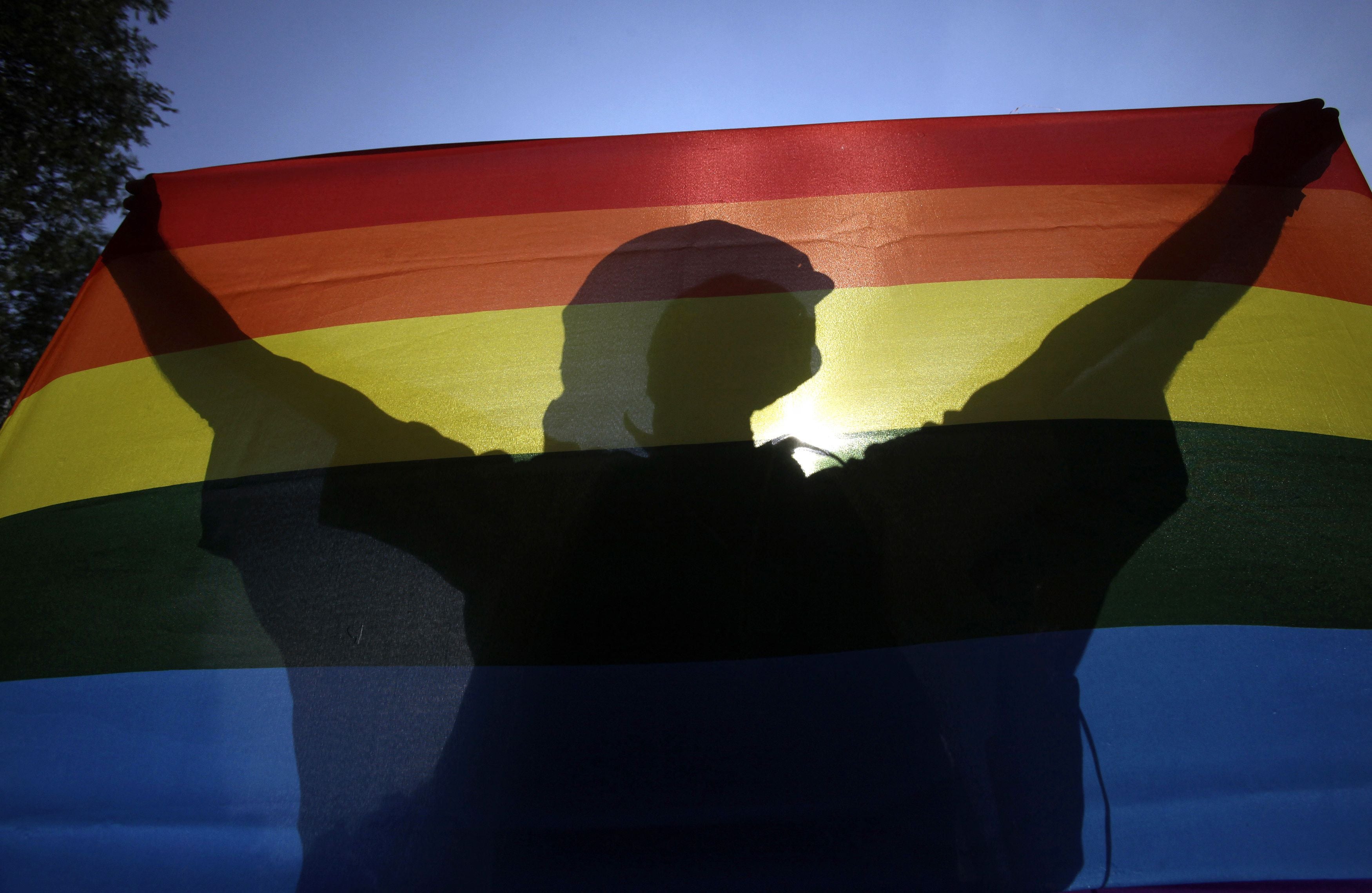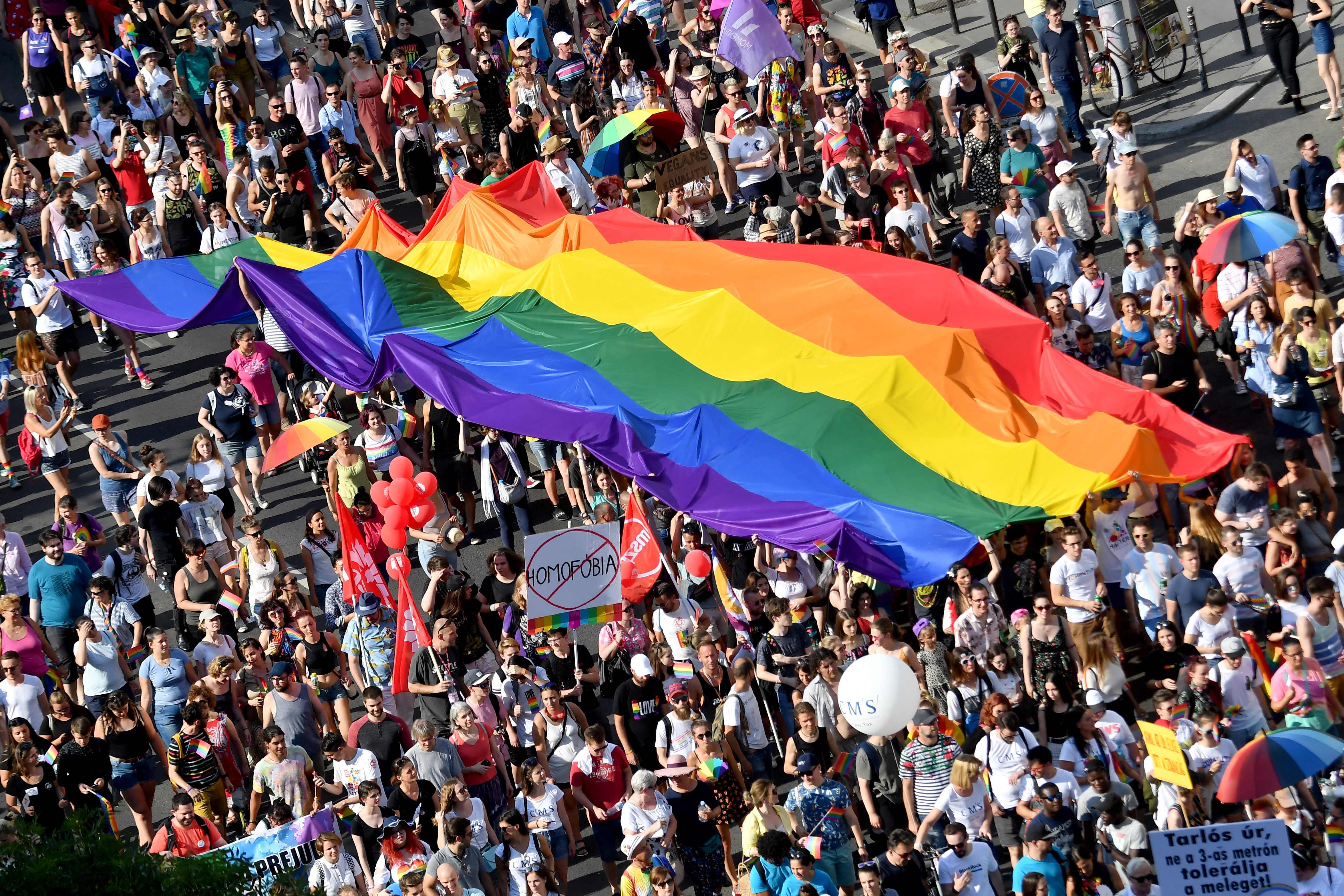An act of defiance: Pride set to go ahead in Budapest despite Orban’s LGBT+ offensive
Saturday’s Budapest Pride march comes just days after Viktor Orban called on the country to back his anti-LGBT+ law, reports William Nattrass

Budapest Pride parade on Saturday may be one of the most politically charged events in the history of Pride celebrations.
It was set to go ahead in defiance of efforts by Hungarian populist prime minister Viktor Orbán’s efforts to restrict the dissemination of LGBT+ content, which he has pitched as a battle to protect the country’s way of life. Despite this, thousands were expected to take to the streets for the first Pride march in the city for two years, due to the pandemic.
Organisers say they are determined to make the occasion a fitting response to the Fidesz party government’s hostile agenda.
Pride urged in an official statement: “Claim back your future! The government has continued its infamous, exclusionary, stigmatising campaign against the LGBTQ community.
“We should show them that we won’t give up, that we won’t accept that LGBTQ people are treated like second grade citizens.”
A law passed by Orbán’s government to ban the dissemination of LGBT+ content in materials accessible for under-18s came into effect earlier this month, causing international outcry.
Justified by the government as a “child protection” act necessary for the safeguarding of the traditional family model, it is feared the law will have drastic effects on the mental health of LGBT+ people in Hungary.
Dávid Vig, the director of Amnesty International Hungary, told The Independent that the law is already having an alarming impact.

He says: “A bookseller was recently fined for selling a book depicting a child with same-sex parents, and two gay doctors have been beaten, one of them seriously enough to become unconscious.
“A rise in cases of hate crime is just one sign of the deteriorating human rights situation in Hungary.”
Orbán stoked the flames of controversy around LGBT+ rights still further on Wednesday with the announcement that the “child protection” law would be the subject of a nationwide referendum.
The proposed referendum clearly aims to provoke negative responses: it will ask Hungarians whether they support “the promotion of gender reassignment treatments for minors”, or “the unrestricted presentation of sexual media content to minors that affects their development”.
While announcing the referendum, Orbán asked the Hungarian people to respond “no” to its five questions. He compared the referendum to a previous one held five years ago on migrant quotas, in which 98 per cent of voters supported the government’s stance against the EU’s migrant allocation policy.
He said: “Then, a referendum and a common will stopped Brussels. You have succeeded once and together we will succeed again.”
The new child protection referendum is the latest manoeuvre by Orbán portraying LGBT+ freedoms as a threat to traditional Hungarian values and as part of an EU-led strategy of ideological “colonialism” against Hungary.
Given such overtly confrontational rhetoric when it comes to LGBT+ rights, there have been fears that counter demonstrations could mar this year’s Pride parade in Budapest.
Several organisations have already announced counter protests in the capital for Saturday, including the “Budapest Pride National Resistance” group.
They are even urging protestors to send photos of people with children at the Pride parade to the police, claiming taking underage people to the parade constitutes a violation of the new child protection law.
A recent survey showed that 80 per cent of Hungarians believe Orbán’s anti-LGBT laws should be protested [against]
Rémy Bonny, the executive director of the Forbidden Colours EU LGBT+ fund, who works closely with the organisers of Budapest Pride, told The Independent that “organising Pride events in Hungary always involves a security analysis”.
He adds: “Although the police presence has been scaled up in recent years, the situation before or after the parade can be unpredictable. Hungary has a well-developed and aggressive far-right movement, which has organised violent counterdemonstrations in the past.”
While clashes used to be a regular feature of Budapest Pride parades, some campaigners note that despite the government’s hostile stance, public perceptions of sexual minorities are now becoming more positive.
Vig says: “A recent survey showed that 80 per cent of Hungarians believe Orbán’s anti-LGBT laws should be protested [against].
“An unexpectedly high number of people have shown their support during recent weeks and a large turnout is expected for the Pride parade. Still, even if the parade goes ahead without disturbance, it doesn’t change the negative impact of the government’s homophobic campaign.”
As is the case throughout central Europe, Hungary’s LGBT+ community finds the greatest acceptance in the country’s major cities.

Budapest mayor Gergely Karácsony, a favourite to take on Orbán in next year’s general elections, has embraced support for minority groups as a popular alternative to Orbán’s style of government, flying a rainbow flag from Budapest City Hall throughout Pride month.
Thirty embassies and 12 cultural institutes have, meanwhile, expressed their support for the LGBT+ community’s “rights to equality and non-discrimination, freedom of expression and peaceful assembly” prior to the parade.
The open letter was signed by the embassies of the USA, the UK and a wide range of European nations, although Hungary’s regional Visegrád Four allies – the Czech Republic, Slovakia and Poland – were notably absent from the list.
As the confrontational rhetoric grows from both sides and as Orbán’s LGBT+ referendum invites negativity from conservative elements of society, it is clear that Saturday’s parade has become a focal point for tensions.
Yet for this very reason, the Hungarian LGBT+ community believes holding the parade this year is more important than ever.
Join our commenting forum
Join thought-provoking conversations, follow other Independent readers and see their replies
Comments
Bookmark popover
Removed from bookmarks